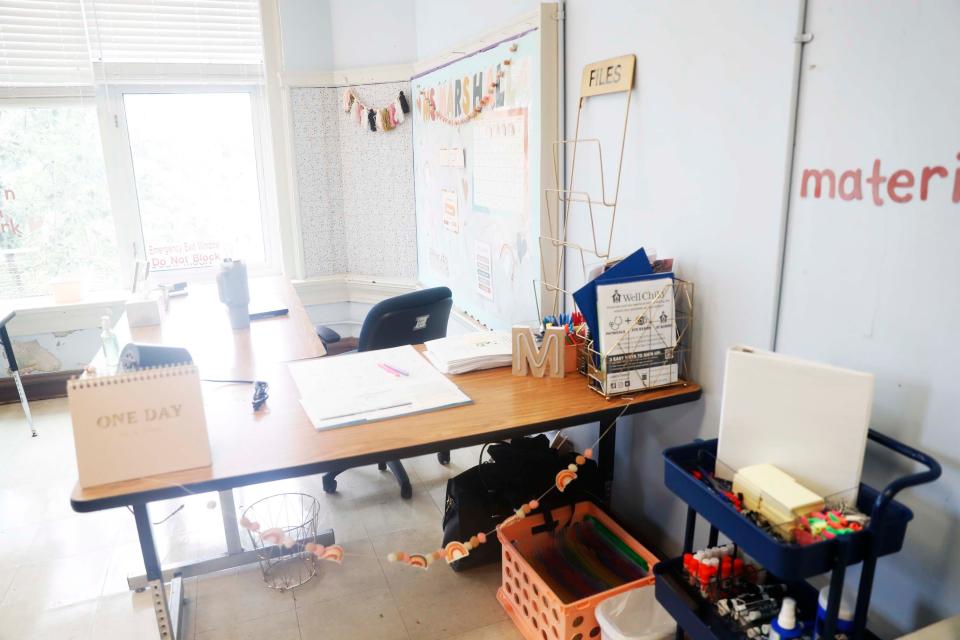MSCS has a chronic absenteeism rate of 28%. Here's what the district plans to do about it
In May, Memphis-Shelby County Schools leaders brought the district’s principals together for a meeting. And whether they led an elementary, middle, or high school, every principal shared the same challenge: chronic absenteeism.
Rates for the recently concluded 2023-24 academic year haven’t been released yet, but in the 2022-23 academic year, MSCS logged a chronic absenteeism rate of 28.1% ― which equates to nearly 29,000 students. These were students who were enrolled for at least half of the school year but were absent for 10% or more of it.
When you look at the number of truant students, the percentage is even higher. A truant student can be enrolled at any point in the year and has at least five unexcused absences. Last year, the district had a truancy rate of 40% or almost 45,000 students.
This can have an adverse effect on student performance. So, as it looks to the upcoming academic year, MSCS is planning to combat chronic absenteeism and truancy by placing more attendance agents in schools. And if all goes according to plan, this should help improve student performance.

“On the other side, the outcome is that your chronic absenteeism rate will decrease,” said MSCS Chief Financial Officer Tito Langston during a board retreat on June 1. “Then your achievement, growth, and all of those things will increase, because of attendance.”
As part of its fiscal year 2025 proposed budget, MSCS has plans to place attendance agents in 54 schools that have a chronic absenteeism rate of 25% or more. These are all schools that MSCS has designated “Supe Schools,” which received a D or F letter grade from the Tennessee Department of Education. With each of the 54 attendance agents coming at a price tag of about $53,800, the initiative is expected to cost the district $2.9 million.
But this is also money the district could make back, given how MSCS and other public schools in Tennessee receive state funding. The state funds K-12 schools through the Tennessee Investment in Student Achievement, and funding is based on both enrollment and attendance. The district receives funds per student, and if students are chronically absent, it can lower how much money MSCS receives from the state.
In the 2024-25 academic year, MSCS is slated to receive about $783 million from Tennessee, as part of its proposed $1.8 billion budget.

“Not to equate students to just money, but that's exactly the impact, for each student that is missing a certain amount of days, every 20-day period,” Superintendent Marie Feagins said during a school board work session on June 18.
This isn’t the first time MSCS has tried to combat chronic absenteeism. In early March, about a month before Feagins stepped into the superintendent role, MSCS put out a press release detailing the work of attendance engagement specialists who were working with students at 25 schools struggling with their attendance rates.
At the time, the specialists were monitoring attendance data and trying to mitigate factors that can lead to chronic absenteeism, like housing insecurity and healthcare access.
MSCS also isn’t the only district that has wrestled with increasing chronic absenteeism rates, as it’s an issue that has plagued schools throughout the nation ― especially since the COVID-19 pandemic.
According to the Washington DC-based think tank the American Enterprise Institute, the national chronic absenteeism rate in 2019 was 15%. By 2022, it had jumped up to 28%. In 2023, it decreased slightly, to 26%, but remained well above pre-pandemic averages.
John Klyce covers education and children's issues for The Commercial Appeal. You can reach him at John.klyce@commercialappeal.com.
This article originally appeared on Memphis Commercial Appeal: Memphis-Shelby County Schools plans to combat chronic absenteeism rate

